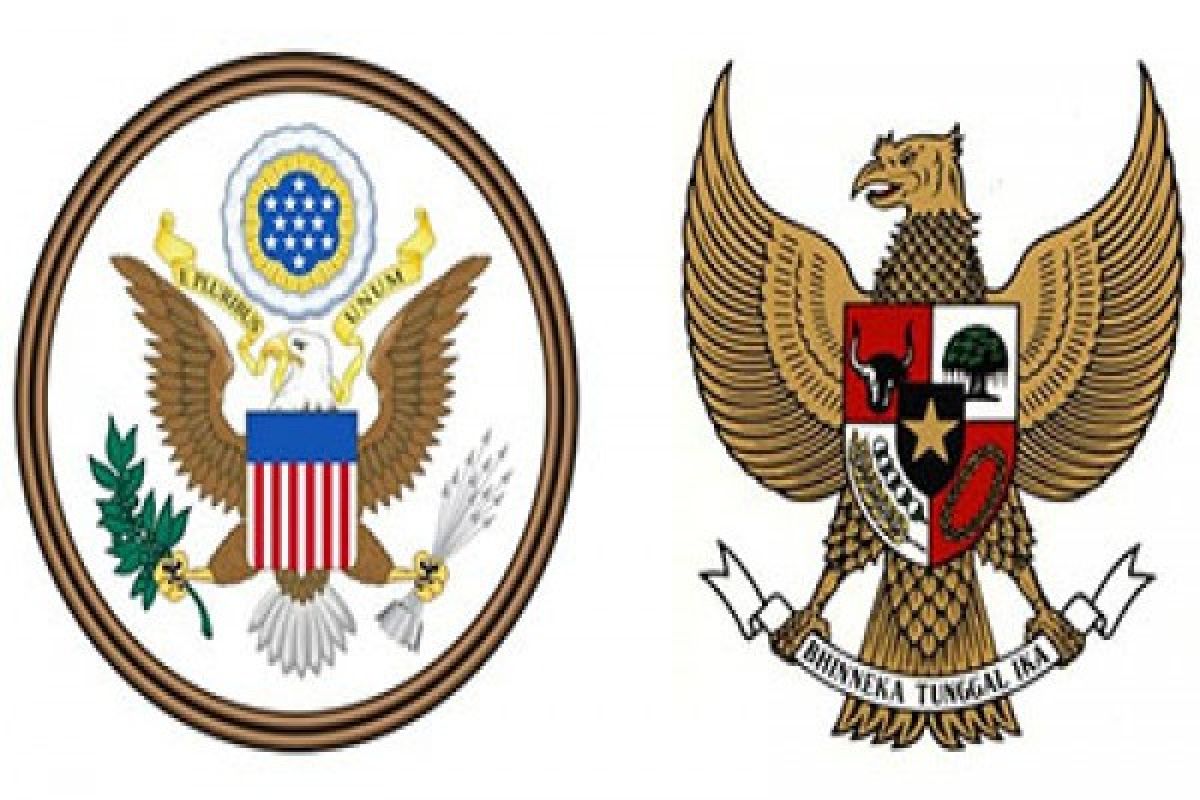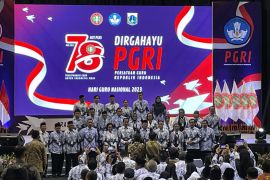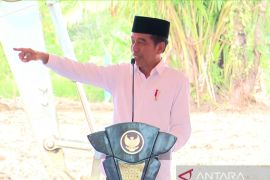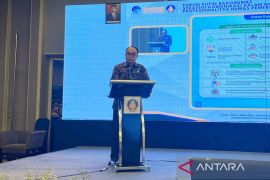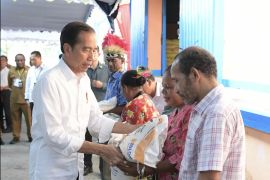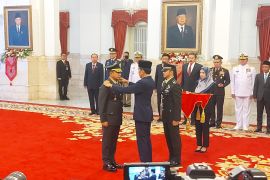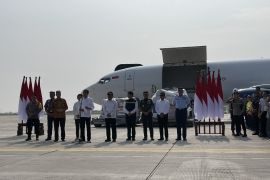I am optimistic that the relations between Indonesia and the US will be better, but it should be based on mutual benefits."Jakarta (ANTARA News) - The Indonesian government remains optimistic about its bilateral relations with the US following Donald Trumps inauguration as the 45th president of the global superpower, as Indonesias main concern is its exports to the US.
While the US trade policy under President Trump might potentially lead to protectionism, it will not significantly affect Indonesian exports to the US, according to Director of the Executive Center of Reform on Economics Mohammad Faisal.
The US was Indonesias major trading partner, with trade balance reaching US$19.27 billion during the January-October 2016 period.
Indonesias export products to the US are mostly sought-after commodities, such as rubber, shrimp, and furniture, and it also includes manufactured products, such as footwear and textiles, he pointed out.
"The US is forecast to maintain its importation of products, including textiles, garments, and footwear, from countries that use cheap labor force, such as Vietnam and Indonesia," he added.
Following his telephonic conversation to congratulate Trump, President Joko Widodo (Jokowi) expressed optimism that bilateral relations between Indonesia and the US will remain sound.
"I am optimistic that the relations between Indonesia and the US will be better, but it should be based on mutual benefits," the president stated in Bogor, West Java, on January 22, 2017.
Jokowi recalled that during their telephonic conversation, Trump told him that he had several friends and businesses in Indonesia.
Earlier, following the election of Republican candidate Trump, the government said Indonesia was preparing a set of foreign policies to enable the country to adjust to the change in the US government.
"The Indonesian government is currently involved in planning and preparations in response to the new political situation (in the US)," Johan Budi, President Jokowis special staff for communications, stated in Jakarta on Friday.
He also made assurance that the relationship between both nations would remain on good terms.
Jokowi had earlier noted that regardless of the candidate that the US public elects to be their next president, the bilateral relations between Indonesia and the US would continue to be close and warm.
Budi also remarked that the Indonesian government will continue to closely follow Trumps foreign policies in a bid to maintain sound relations between Indonesia and the US.
"We look at this as an anticipatory measure to prepare us for potential global changes, not only with regard to changes in the US foreign policy but also a general shift in global politics. This is something that the Indonesian government needs to do," he affirmed.
In the economic field, Indonesia should aim for more business opportunities with the US, as Trump is a businessman, noted Rony Mamur Bishry, lecturer of American Studies at the University of Indonesia.
At a forum organized by the Habibie Alumni Program titled "Trump Presidency and its Impact to Indonesia" held on Jan 21, Bishry stated that Indonesia had to be more aware of potential business partnerships with the US industry, such as with its technology sector.
Due to his background in business rather than politics, Trump is expected to prioritize US economic interests over political formalities.
"He is a realistic businessman. As long as we can find intelligent businessmen to negotiate with him, I think Indonesias economic position with the US will be safe," Bishry noted.
The US is ranked as the 10th-largest investor in Indonesia, with a total value of $430.40 billion in 2016, which is mostly in mining projects.
As the US is very competitive in the field of modern technology, he suggested that Indonesia should form partnerships with major US companies for developing knowledge and boosting its technology sector in fields, such as software, gaming, and animation.
Bishrys recommendations were in line with the governments goal of producing 1,000 technology-based entrepreneurs and 8,000 micro, small and medium enterprises by 2020. The digital technology sector, particularly financial technology, has the potential to have a major impact on the countrys economic development.
Meanwhile, Hikmahanto Juwana, an international law professor at the University of Indonesia, viewed Trump as being quite bold while mentioning terrorism by using the terms "radical Islamic terrorism."
Trump implied that only "Islamic" terrorist groups would be wiped out, he pointed out.
"This can trigger both public and official discontent in the Islamic world against the US," he added.
Maswadi Rauf, another professor from the University of Indonesia, pointed out that the Indonesian government should not harbor high hopes from the US government under President Trump, as he prefers to work with other Western countries rather than with developing nations, such as Indonesia.
He added that Trumps earlier comments, which could be perceived by some as being racist and anti-Islamic, would also affect Indonesia.
In December 2015, Trump had called for barring all Muslims from entering the US.
"Donald J. Trump is calling for a total and complete shutdown of Muslims entering the US until our countrys representatives can figure out what is going on," his campaign press release was quoted as saying by CNN.
Trump had earlier also called for surveillance against mosques and said he was open to establishing a database of all Muslims living in the US.
"If Trumps anti-Islamic stance continues during his administration, the political turmoil it will cause to global politics will inevitably affect Indonesia," Rauf concluded.
(T.F001/INE/KR-BSR)
Reporter: Fardah
Editor: Priyambodo RH
Copyright © ANTARA 2017
